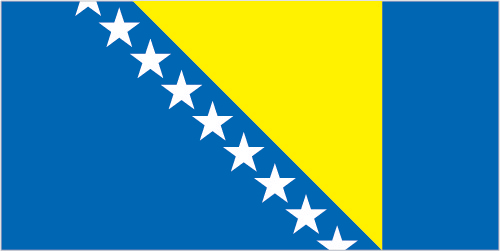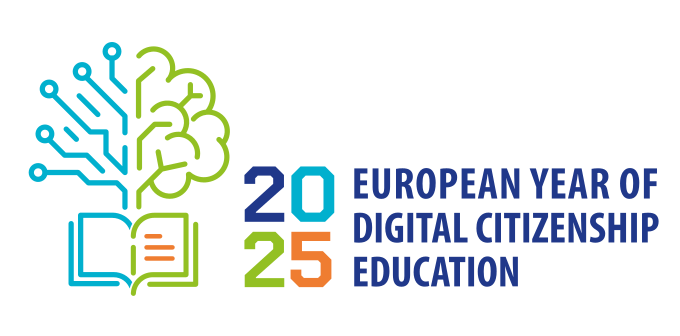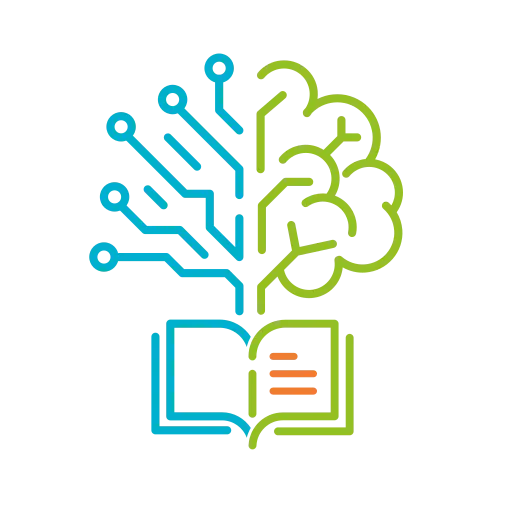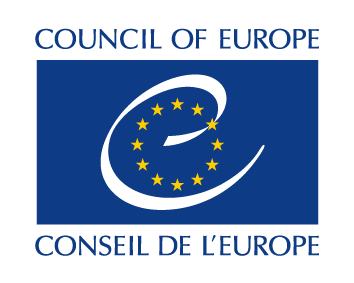- The Strategy for the Development of Media and Information Literacy in the Field of Education in the Canton of Sarajevo 2022. This strategy aims to improve digital literacy and responsible media consumption. It plans to integrate Media and Information Literacy in the education curricula.
- The Strategic goal 2 of the Development Strategy of the Zenica Doboj Canton 2021-2027 is to implement complete digitisation in the education sector, and the expected result is to “follow and improve the digital platform in all primary and secondary schools.
Country profile list

Bosnia and Herzegovina
- The Strategy for the Development of Media and Information Literacy in the Field of Education in the Canton of Sarajevo 2022: No Information was found
- Other initiatives/awareness raising activities: a) Bosnia and Herzegovina Safer Internet Day, organized by the Safer Internet Centre in Bosnia and Herzegovina. Safer Internet Day is celebrated through an online quiz/competition for primary and secondary school students on the topic of safety in the digital environment via the web platform. b) Activities to raise awareness of the importance of digital education are promoted in primary and secondary schools in the area of Zenica Doboj Canton through cultural and public activities of schools and through several competitions.
Sources
- https://mon.ks.gov.ba/sites/mon.ks.gov.ba/files/2022-06/Strategija%20razvoja%20medijske%20i%20informacijske%20pismenosti.pdf
- Other initiatives:
a)https://www.saferinternetday.org/in-your-country/bosnia-and-herzegovinia
https://www.sigurnodijete.ba/
b) Online survey with national authorities
- The Strategy for the Development of Media and Information Literacy in the Field of Education in the Canton of Sarajevo 2022. Main mechanisms for assessment outlined in the strategy: Monitoring and Evaluation: The strategy outlines mechanisms for continuous monitoring and evaluation to assess its impact. This includes regular reporting, data collection, and analysis to track progress and effectiveness. Performance Indicators: Specific performance indicators are established to measure the success of the strategy. These indicators will help in evaluating various aspects such as student engagement, teacher training effectiveness, and the integration of media literacy into the curriculum. Feedback Mechanisms: The strategy includes provisions for gathering feedback from students, teachers, and other stakeholders to inform ongoing improvements and adjustments.
- Action Plan for the implementation of the Strategy for the Development of Media and Information Literacy in the Education Sector in Sarajevo Canton 2023 – 2025: The Ministry of Science, Higher Education and Youth of Sarajevo Canton is responsible for the monitoring and evaluation of the activities.
Sources
- https://mon.ks.gov.ba/sites/mon.ks.gov.ba/files/2022-06/Strategija%20razvoja%20medijske%20i%20informacijske%20pismenosti.pdf
- Online survey with national authorities
- The Strategy for the Development of Media and Information Literacy in the Field of Education in the Canton of Sarajevo 2022. Main stakeholders involved in design:
- Ministry of Education of the Canton of Sarajevo: The primary body responsible for designing the strategy.
- Department of School Psychology: Collaborated in the design phase, particularly in integrating media literacy into the educational framework. Educational Institutions: Schools and universities provided input and feedback during the design phase to ensure the strategy meets educational needs.
Sources
- The Strategy for the Development of Media and Information Literacy in the Field of Education in the Canton of Sarajevo 2022. Stakeholders Involved in Implementation: Ministry of Education of the Canton of Sarajevo: Overseeing the implementation of the strategy; Schools and Universities: Actively incorporating media literacy into their teaching practices and curricula; Teacher Training Institutions: Providing necessary training and professional development for educators; Non-Governmental Organizations (NGOs): Offering expertise, resources, and support for the strategy’s initiatives; Media and Technology Companies: Collaborating to provide tools, platforms, and resources to facilitate media literacy education; Educational Publishers: Developing and distributing materials and resources that align with the strategy’s objectives.
Sources
- The Strategy for the Development of Media and Information Literacy in the Field of Education in the Canton of Sarajevo 2022. Stakeholders Involved in Impact Assessment: Ministry of Science, Higher Education and Youth of the Canton of Sarajevo: Responsible for the overall monitoring and evaluation of the strategy’s impact, as defined by the Action Plan; Department of School Psychology: Assisting in the assessment of how well the strategy is being integrated and its psychological impacts; Schools and Universities: Providing data and feedback on the effectiveness of the media literacy programs.
Sources
- Safer Internet Centre. The Centre provides an online spot where illegal and harmful content can be reported. SIC services are currently being promoted to the target groups by a set of well-designed awareness and outreach activities, including information materials such as posters, leaflets, radio jingles, and additional materials that are being developed as we speak, which are already resulting in increased awareness and knowledge of target groups on online safety and prevention of OCSEA (platform statistics, helpline services requested, etc.). The Safer Internet Centre (SIC) signed the Cooperation Protocol with representatives of all three police agencies in Bosnia and Herzegovina – the Federal Police Unit, the Ministry of Interior of the Republic of Srpska and the Brčko District Police. The Safer Internet Centre (SIC) in Bosnia and Herzegovina, coordinated by IFS-EMMAUS (leading the Safer Internet Centre and coordinating various online safety initiatives), collaborates with various stakeholders to promote online safety and digital citizenship education. Main partners are government agencies (the Federal Police Unit, the Ministry of Interior of the Republic of Srpska and the Brčko District Police), NGOs (Centre for Missing and Exploited Children in Croatia), Educational institutions (schools and universities), media and tech companies, international organization (INHOPE (International Association of Internet Hotlines), providing a platform for reporting illegal and harmful content and supporting the hotline operations and awareness campaigns. and ECPAT (End Child Prostitution and Trafficking), supporting initiatives to combat online child exploitation).
- As part of the Horizontal Facility for the Western Balkans and Türkiye 2019-2022 project under the European Union and Council of Europe action “Quality education for all” programme. 29 secondary and primary schools received IT equipment to create “Digital democratic classrooms” to promote a democratic culture through exchange of information and ideas with other learners locally and internationally. Additionally, as part of celebrating Human Rights Day, the selected schools participated in online chat rooms on democracy and human rights.
- The ICDL Foundation collaborates with the Association of Informatics in Bosnia and Herzegovina to improve the digital competencies of its citizens through international certification. This initiative is part of the initiative by the government to align itself with the European DigComp framework.
- In 2023, the University of Sarajevo and UNICEF launched an e-learning platform “DigiEdu” to strenghten digital competences of teachers and students. It is an initiative at the Sarajevo university.
- Danish Refugee Council offers digital literacy classes to refugees and asylum seekers in Bosnia
- The Ministry of Education of the Canton of Sarajevo in cooperation with the Institute for the Development of Pre-University Education of the Canton of Sarajevo is actively and continuously working to strengthen the competences in improving the knowledge of the defined recommendations of the DCE among all those involved in the educational process. Cooperation has been established with relevant public and private sectors as well as non-governmental organisations.
Sources
- https://www.saferinternetday.org/in-your-country/bosnia-and-herzegovinia
- https://www.coe.int/en/web/education/-/schools-in-bosnia-and-herzegovina-celebrate-human-rights-and-democracy-month-in-newly-equipped-digital-democratic-classrooms-
- https://icdl.org/country/bosnia-herzegovina/#:~:text=The%20ICDL%20Foundation%2C%20through%20its%20collaboration%20with%20the,and%20responsible%20use%20of%20digital%20tools%20and%20media
- https://europeanjournalists.org/projects/building-trust-in-media-in-south-east-europe-and-turkey/
- Link to DigiEdu https://digiedu.unsa.ba/
- https://www.unicef.org/bih/en/stories/teachers-bosnia-herzegovina-driving-force-behind-digital-transformation-education
- https://pro.drc.ngo/resources/news/bosnia-herzegovina-digital-literacy-lessons-for-people-on-the-move/
- Online survey with national authorities
- An initiative involves the collaboration between UNICEF, UNESCO, and ILO, which provided training on digital learning to 2,498 teachers and supplied digital devices to 110 schools. This project aimed to enhance digital learning infrastructure and teacher capacities, aligning with global educational standards
Sources
- Global Education Network Europe (GENE)
- Member of INHOPE / INSAFE (Centres from BIK+)
- The Media and Information Literacy: for Human Rights and More Democracy project. Funding from Norway and Luxembourg through Council of Europe. Goals: Strengthening BiH key MIL stakeholders’ capacity to understand and contribute to the creation; implementation; monitoring and evaluation of strategic, state-wide MIL framework. Increased awareness of MIL stakeholders of the importance and complexity of MIL in the specific context of BiH; and stakeholders’ capacities to create and promote MIL content.
- Building Trust in media in South East Europe and Türkiye Project is funded by the EU and UNESCO, places focus on strengthening freedom of expression, access to information, free, independent and pluralistic media, ensuring that journalists and media are key drivers for democratic, sustainable and peaceful development in the region. Albania, Bosnia and Herzegovina, North Macedonia (the Former Yugoslav Republic of Macedonia), Montenegro, Serbia and Türkiye
- Member of Commission Working group on Schools
Sources
Training on DCE to teachers and other professionals:
The Ministry of Education of the Canton of Sarajevo is not responsible for the initial education of teachers, but in cooperation with the Institute for the Development of Pre-University Education of the Canton of Sarajevo, it continuously works on training all employees in educational institutions on various topics. The Brčko District Government provides events and projects that motivate education professionals to upgrade their knowledge, teaching practices, qualifications and digital and critical skills through professional development to keep up with students’ use of interactive tools and competencies needed for access.
Translation and dissemination of DCE Recommendation:
The Ministry of Education of Sarajevo Canton forwards all submitted recommendations from the Ministry of Civil Affairs of Bosnia and Herzegovina to educational institutions for their attention and work. The Brčko District Government did not translate the DCE Recommendation of the Council of Europe.
Contact us
Education Department
Council of Europe
Agora Building
1, Quai Jacoutot
67075 Strasbourg Cedex
France


